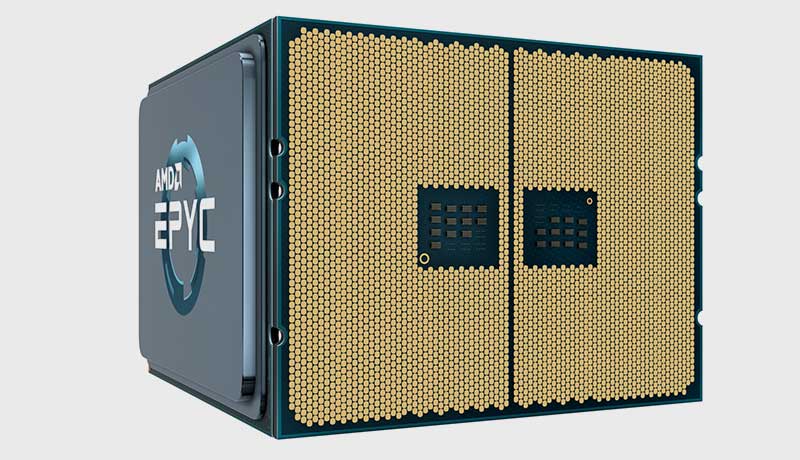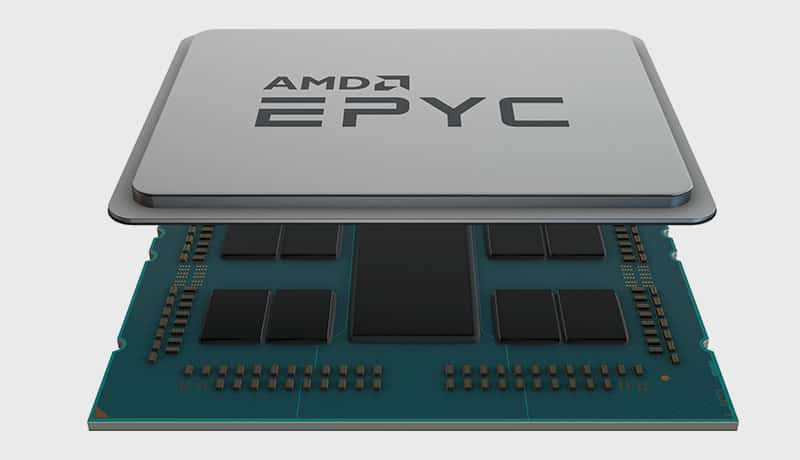
AMD announced the continued expansion of the AMD EPYC™ processor ecosystem for virtualized environments and hyper-converged infrastructure (HCI) with Lenovo announcing the ThinkAgile HX, the latest solution based on AMD EPYC processors and Nutanix’s hybrid cloud infrastructure solution. This new solution expands the ecosystem of AMD EPYC based cloud and virtualized solutions.
As customers want more value for their data center budget, IT departments are moving to HCI to modernize and transform their enterprise data center. This creates a high performing and efficient data center that is easier to manage for the quick-changing needs of businesses. By choosing AMD EPYC processors and Nutanix hybrid and multicloud solutions, customers can accelerate workloads like digital workspaces including VDI with fantastic performance, advanced security features, and broad ecosystem support from major ISVs and OEM partners.
“IT leaders are faced with a difficult and evolving situation right now. As more employees are in a ‘work from anywhere’ situation, they have to rethink their data center operations and move them to a more digital and modern environment that can provide the security, performance and agility needed to support their business,” said Dan McNamara, senior vice president and general manager, Server Business Unit, AMD. “A virtualized or HCI environment powered by AMD EPYC processors gives these data center operators and IT administrators the power to provide a high-performance virtualized environment with leading-edge security features, across a wide variety of OEM platforms and software solutions. This will not only help them in this ‘work from anywhere’ environment but also enable them to contribute to their company’s business goals.”
“As Nutanix evolves from delivering HCI software to hybrid cloud infrastructure we look to provide our customers with the best software and hardware solutions to help modernize their data centers, as part of their hybrid and multicloud strategies,” said Tarkan Maner, Chief Commercial Officer at Nutanix. “Nutanix software, along with OEM platforms and AMD EPYC processors, deliver the performance, flexibility, and choice our customers need to support databases, analytics, digital workspaces and other business critical applications. We’re excited to continue this collaboration with AMD and help our customers modernize their data centers.”

The Growing AMD EPYC HCI Ecosystem
AMD EPYC™ processors have become a leading choice to drive innovation of virtualization and HCI solutions due to its accelerated performance, class leading memory capabilities, and advanced security features. These solutions using AMD EPYC processors are now widely available, customers have a choice of solutions when modernizing their data centers.
“In our business we are heavily focused on HCI solutions and software-defined storage and the AMD EPYC processors have dramatically expanded the horizon of what we can build to support HCI and software defined storage,” said Aleksandr Ragel, co-founder and Managing Partner, Diaway. “This is why we chose the AMD EPYC processor to power the DIAWAY EDGEBOX™, a turnkey solution that’s ideal for large-scale software-defined storage, HCI and diverse software stacks. We’ve seen customers use the EPYC powered EDGEBOX for storage intensive workloads, and even pure HCI environments, where the EPYC processor does the compute and the EDGEBOX runs the management layer for a private cloud. We are excited to continue our work with AMD to deliver fantastic HCI solutions based on EPYC.”
“AMD EPYC processors have enabled us to deploy high-density hyperconverged infrastructure servers with unprecedented flexibility,” said Bart Willems, technology director, ATIPA Technologies. “The AMD EPYC processor’s high core counts and support of PCIe 4 were instrumental in allowing us to pack more performance for more virtual machines with faster network access and lower storage latency in as little data center space as possible.”
AMD has worked closely with its OEM and software provider partners to offer solutions with leading performance, scalability, and total cost of ownership (TCO). These HCI solutions include:
As HCI continues to provide efficiencies and agility for demanding IT requirements driving the customers’ cloud experience, AMD has been working closely with our ecosystem partners to deliver fully tested and validated solutions. With the ongoing success with industry partners like Dell Technologies, HPE, Lenovo, Microsoft and Nutanix, AMD is committed to continue providing the best possible solutions for partners and customers.
